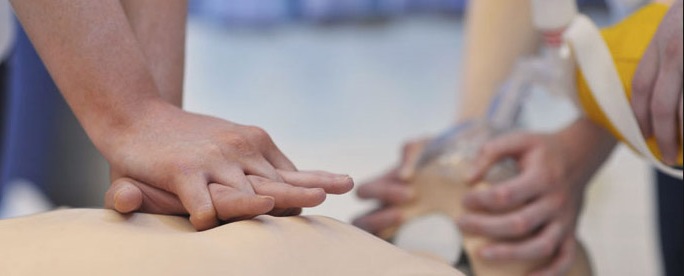- Home
- BASIC LIFE SUPPORT AWARENESS
BASIC LIFE SUPPORT AWARENESS

Course Benefits
-
This course is a mandatory requirement for people working in the care sector.
-
The course is recommended by Skills for Care as a minimum standard for people working in social care.
-
The course is recognised by the Care Quality Commission (CQC) as a minimum standard that people working in social care need to meet before they can safely work unsupervised.
-
This course meets the Infection Prevention and Control standard of the mandatory Care Certificate.
-
The course meets some knowledge criteria for Infection Prevention and Control Unit of the QCF (NVQ) Diploma in Health & Social Care.
-
The course can be used for credit transfer or Recognition of prior learning (RPL) to Infection Prevention and Control Unit of the QCF (NVQ) Diploma in Health & Social Care.
-
The Course has credit value under the QCF framework and recognized throughout the United Kingdom and Europe.
Course Objectives
This course examines the much needed support that must be given to a person in an emergency situation while waiting for the emergency services to arrive. The course teaches how to carry out primary assessment of the victim and their environment and more importantly, how to give the victim the best chances of survival during those crucial first few minutes that accident occurs.
Learning outcomes
At the end of this course, learners must be able to understand:
-
The importance of carrying out support during the crucial first few minutes that accident occurs.
-
Meaning and practice of recovery position
-
Correct emergency procedure.
-
How to carry out initial safety assessment of the environment.
-
How to carry out primary assessment of the victim (ABCDE).
-
The basic responsibilities of those performing emergency life support.
-
Differences between treatment for adults and treatment for children.
-
Identify internal and external bleeding.
-
Awareness of the different types of emergency, including Shock, choking, fractures, etc.
-
How to deal with unconscious victims.
-
The concept and practice of Cardiopulmonary Resuscitation (CPR).
-
The uses of Automated External Defibrillators (AED).
Course Contents
-
Correct emergency procedure.
-
Initial safety assessment of the environment.
-
Primary assessment of the victim (ABCDE).
-
Cardiopulmonary Resuscitation (CPR).
-
Automated External Defibrillators (AED).
-
Responsibilities of those performing emergency life support.
-
Different treatment of adults and children.
-
Internal and external bleeding.
-
Types of emergency, including Shock, choking, fractures, etc.
-
Dealing with unconscious victims.
-
Recovery position
Assessment Methods
This course can be assessed by a wide range of methods, depending on the level and mode of study. Methods available include but not limited to the following:
-
Written Assignment
-
Observation
-
Multiple choice question (online only)
-
Professional discussion
-
Witness Testimony
Guided learning hours
An average of 15 hours is recommended for this course.




